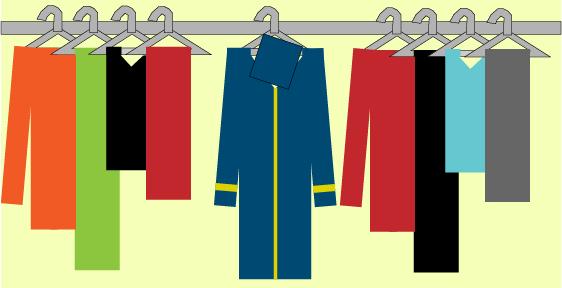Growing up hearing horror stories about college graduates struggling to find work during the 2008 recession, I wasn’t confident that I’d have much better luck as an upcoming graduate in the middle of a pandemic.
According to tradingeconomics.com, in April 2020, the unemployment rate peaked at 14.7 percent. It wasn’t until July 2020 that the unemployment rate dropped back down to around 10 percent, the peak of unemployment rate caused up the 2008 recession, according to the U.S. Bureau of Labor and Statics.
As a senior who was planning to graduate at the end of summer 2020, I decided to move my graduation to December 2020 for several factors, the biggest one being the economy’s current state.
When the pandemic hit, I was working on applying to summer internships for the internship class I was planning to take over the summer.
Summer 2020 internships were a mess. By the time summer internships in late April and May rolled around, companies were dropping their internships or working to make them virtual, leaving many students scrambling to adjust their plans.
According to a CNBC story, a survey done by Handshake said that more than a third of their surveyed students lost their summer internships, and 24 percent of the remaining students had internships that shifted online.
Between the internship shortage and the growing unemployment rates, I wasn’t in a rush to graduate like I had been.
I initially wanted to graduate over the summer to meet the expectation of graduating in four years, save some money, and stay with the group of students I’d planned to walk the stage with, but by April, the pros of graduating on time weren’t outweighing the cons.
While taking my classes over the summer would have saved me some money through the Wesleyan summer scholarships, I wasn’t ready for more online courses.
I decided to move my summer classes to the fall semester because I figured that the class situation would be better and more valuable to my mental health than the money saved.
I’m not a fan of entirely online classes. Before the pandemic, I was pretty sure my limit was taking two classes online simultaneously. The COVID-19 restrictions forcing my five spring classes online proved that point to me. I was good in two, I ended up extending two, and I dropped the fifth one.
I’m glad I waited because, for the fall 2020 semester, Wesleyan classes switched to hybrid. Hybrid courses are my personal preference because they have enough in-person connections and accountability with some online flexibility.
While the current internship pool and job market aren’t perfect, the pandemic actually created some new opportunities for students. Fall 2020 internships that were usually exclusively in-person became remote, which extended applications to students who lived outside of the area. I’ve also seen more remote jobs advertised on LinkedIn this fall than in my last year of browsing the website.
Postponing my graduation not only provided more work opportunities, but it also gave me the summer to reflect and figure out what kind of jobs I wanted to pursue after graduation.
Before the pandemic, I knew what skills I had and how they could translate into several fields. I didn’t know what industry I wanted to start in. Now, I know, I’d ideally like to go into the trade book publishing industry for editing or marketing. Now that I have a job type, I can prioritize when applying for positions.
The pandemic’s continued reign even ended up erasing one of my initial cons of not being able to graduate with the spring and summer 2020 graduates since their ceremony is now combined with the December 2020 graduation.
Overall, the only real cons I have for letting the pandemic extend my schooling a semester is not graduating in that four-year window and a little more cost. The pros of better mental health, learning conditions, work opportunities, and post-graduation plans far outweigh those cons and make me glad I moved my graduation to December last May.










![Pippin, played by Hunter Heart, leads a musical number in the second act of the musical. [Photo courtesy Kris Ikejiri]](https://therambler.org/wp-content/uploads/2025/04/Pippin-Review-1200x800.jpg)
![Harriet and Warren, played by Trinity Chenault and Trent Cole, embrace in a hug [Photo courtesy Lauren Hunt]](https://therambler.org/wp-content/uploads/2025/02/lettersfromthelibrary_01-1200x800.jpg)
![Samantha Barragan celebrates following victory in a bout. [Photo courtesy Tu Pha]](https://therambler.org/wp-content/uploads/2025/05/20250504_164435000_iOS-834x1200.jpg)





![Hunter Heart (center), the play's lead, rehearses a scene alongside other student actors. [Photo courtesy Jacob Sanchez]](https://therambler.org/wp-content/uploads/2025/04/thumbnail_IMG_8412-1200x816.jpg)
![Student actors rehearse for Pippin, Theatre Wesleyan's upcoming musical. [Photo courtesy Jacob Rivera-Sanchez]](https://therambler.org/wp-content/uploads/2025/04/Pippin-Preview-1200x739.jpg)
![[Photo courtesy Brooklyn Rowe]](https://therambler.org/wp-content/uploads/2025/05/CMYK_Shaiza_4227-1080x1200.jpg)

![Lady Rams softball wraps up weekend against Nelson Lions with a victory [6 – 1]](https://therambler.org/wp-content/uploads/2025/04/Screenshot-2025-04-04-100924-1200x647.png)















